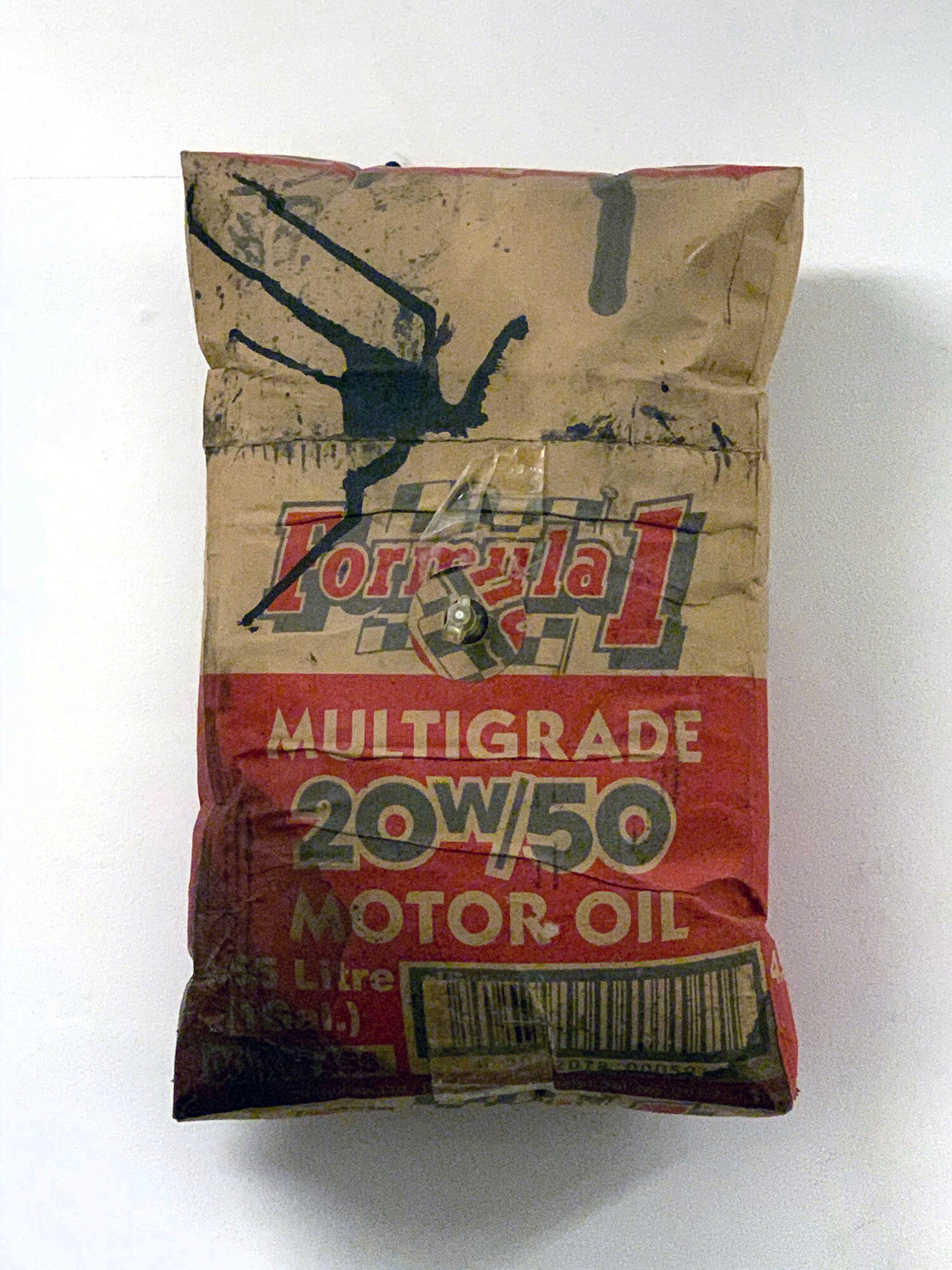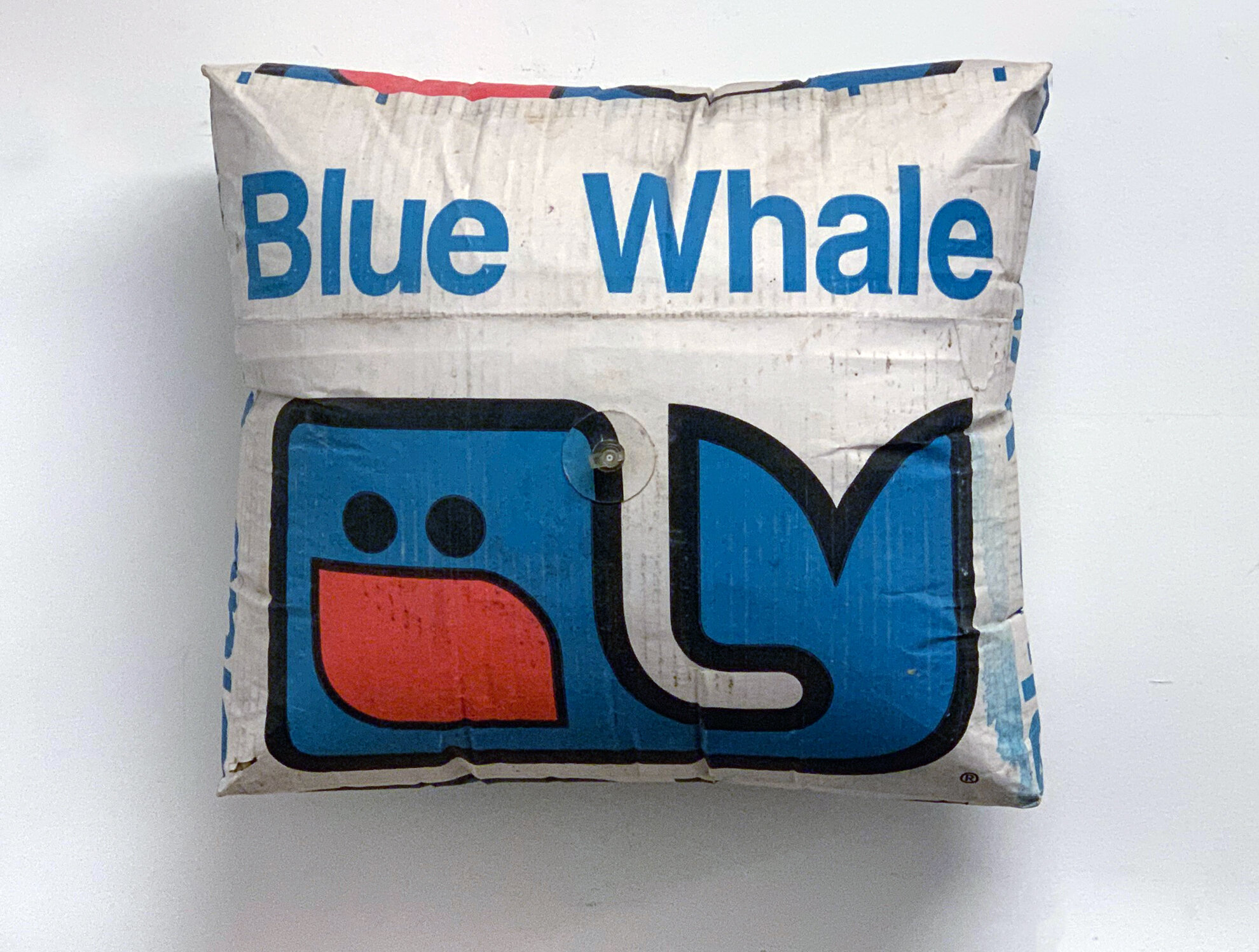Voices: Carolina Wheat & Liz Nielsen, Elijah Wheat Showroom, Brooklyn
carolina wheat & liz nielsen
Carolina Wheat and Liz Nielsen are the founders of Elijah Wheat Showroom, located in Brooklyn, New York.
Carolina Wheat-Nielsen & Liz Nielsen in front of installation by Natalie Baxter at Elijah Wheat Showroom, March, 2018. Photo: Joshua Simpson
What are some common themes in your program?
We have a way to bring relevant politics to the serendipitously exact month in the national news conversations.
Who is the artist in your program that you have worked with the longest? How did that relationship begin?
We love the painter, Lauren Gregory. Not only did she and Elijah have a good relationship, we've shown her numerous times. We first met at SAIC MFA open studios and we've had a lovely friendship since. She is like a channel, creating portraits of individuals that coincide directly with their personality. Her painted animations are stellar and we love to sell them to her collectors around the world. She is one of a kind cool and the best Dolly Parton impersonator you've every seen.
Tell us about one show you are excited to present in your gallery this spring.
We are thrilled to present Zsofia Keresztes this spring. Coming from Budapest, she is building a site specific sculpture inside the gallery. We've supported her residency with BuBu Arts as she is living with us for the months leading up to the solo exhibition.
What is it about artists that you respect and honor the most?
In artists we honor: Gratitude, loyalty, conceptual integrity and craft. Also, we respect an artist that has a hard work ethic and ability to be mutable to the trials and tribulations of a small gallery.
What is a piece of advice you give to artists?
We often work with and advise artists that are typically new to the Art World. We ensure they know how important it is to manage their inventory and keep their work safe (undamaged). Whether by packing it well, or storing it with care, we emphasize how important it is to respect their own work in this way, because it is a valuable object!
Clive Murhpy, Staples, Courtesy of Elijah Wheat Showroom
What qualities do you look for in an artist?
Artists that are involved in critical conversations surrounding our every-day. They way an artist responds to their environment by their hard work ethic and craft is equally important to the context that the work comes from in history. The visual language must meet the critical text and references in the vocabulary of their statement.
Name an artist you don't represent that are particularly drawn to and why.
We've worked with Cheryl Pope presenting her in group exhibitions a few times in the past; she is currently represented by Monique Meloche. Pope is one of the most engaged artists in the community of Chicago and presents work through a social practice that transcends a standard aesthetic object. The way she uplifts, volunteers and mentors marginalized individuals is deeply inspiring.
Tell us about why you decided to open a gallery.
We believe that art has the ability to transcend language boundaries and brings people together. Exploring the criticality in visual language and the unique views of creatives and how they respond to the surrounding world helps us understand and value other opinions. Unlike most channels of media or communications, Art is a way to be politically critical, often escaping censorship.
How have you grown as a curator over the years?
We believe that combining works to find (or push) intention within a single idea is exhilarating! There are brilliant artists creating valuable content in their studios. The curator has the insight to pull these varied expressions together in order to combine their unique contemporaneous visions into a whole.
Name a big overall lesson you've learned in running a gallery.
Taking curatorial risks is a beautiful way to find new meaning in the retail market.
Clive Murphy, Pam Pak, Courtesy of Elijah Wheat Showroom
What are you busy working on right now?
Liz continues to work on her experimental analogue photography and Carolina is writing a Mystic Fiction genderless novel loosely based on her love of Detroit Techno, astral travel, Elijah and the Tibetan Book of the Dead.
What does success as a gallery director mean to you?
A successful gallery director helps empower their artists and foster the growth of the artists' career.
What is the best piece of business advice you were given when you first started out?
The best piece of advice we've received is: don't worry about what sells, your legacy will be your curatorial reputation and how you treat your artists and support their vision.
What is your favorite thing about your gallery space?
Our favorite thing is our amazing landlord (Michael Potvin of Nitemind), location and storefront window.
Name a person in the art industry that you admire or look up to and why.
Jules Thompson (David Zwirner Books) is one of the most incredible and dedicated book producers today. She has successfully navigated color integrity in printed form with even the most challenging painters. Her work is impeccable, capturing the exact and most true value of the original work on every page.
What is the most important quality you look for in a patron of the gallery and your artists?
Our favorite patron appreciates the message and craft of the artist, opposed to just the return on their investment.
Tell us about one artwork you love living with and why.
Above our alter is a Devon Shimoyama photograph of his performative and costumed moment on a beach. It brings us so much joy, reminding us that we have blessed, queer spirits protecting us and outlandish entities in the otherworld brining good juju.
What would a more sustainable art industry look like?
Like many countries, increasing federal government funding would be a gift to our culture. Artists getting a stipend to even show their work without sales being the driving force would be revolutionary.
Clive Murphy, from the body of work Pelts and Skins, Courtesy of Elijah Wheat Showroom





